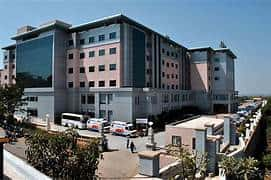
LTP
liver transplant is a surgery that removes a liver that no longer functions properly (liver failure) and replaces it with a healthy liver from a deceased donor or a portion of a healthy liver from a living donor.
Your liver is your largest internal organ and performs several critical functions, including:
- Processing nutrients, medications and hormones
- Producing bile, which helps the body absorb fats, cholesterol and fat-soluble vitamins
- Making proteins that help the blood clot
- Removing bacteria and toxins from the blood
- Preventing infection and regulating immune responses
Liver transplant is usually reserved as a treatment option for people who have significant complications due to end-stage chronic liver disease. Liver transplant may also be a treatment option in rare cases of sudden failure of a previously healthy liver.
About The Package
liver transplant is a surgery that removes a liver that no longer functions properly (liver failure) and replaces it with a healthy liver from a deceased donor or a portion of a healthy liver from a living donor.
Your liver is your largest internal organ and performs several critical functions, including:
- Processing nutrients, medications and hormones
- Producing bile, which helps the body absorb fats, cholesterol and fat-soluble vitamins
- Making proteins that help the blood clot
- Removing bacteria and toxins from the blood
- Preventing infection and regulating immune responses
Liver transplant is usually reserved as a treatment option for people who have significant complications due to end-stage chronic liver disease. Liver transplant may also be a treatment option in rare cases of sudden failure of a previously healthy liver.
Doctor
Inclusions & Exclusions
Inclusions
1.Room Rent
2.Cost of Surgery
3.Consultation by Primary Team in Package days,
4. Basic Investigations.
Exclusions
1 overstay more than package days
2. Any other Speciality Consultations
3. Special Equipment
4. Additional Procedure/Surgery.
5. accommodation of more than 2 days
Accommodation

HOTEL CITY MERIDIAN
Nearby global hospital plot no 21.23 PS char ln behind police road santhusapet chickpet bengaluru karnataka-560053
A smooth check-in/check-out process, flexible policies and friendly management garner great customer satisfaction for this property.
-
The Hotel has standard Check-In time as 12:00 PM and Check-Out time as 10:00 AM.
An extra bed will be provided to accommodate any child/any additional guest included in the booking for additional charges. (Subject to availability).
About The Treatment
A liver transplant is a surgical procedure to replace a diseased liver with a healthy one from a donor. This treatment is typically necessary for individuals with end-stage liver disease or severe liver dysfunction that cannot be managed effectively with other medical treatments. The most common conditions leading to a liver transplant include cirrhosis, hepatitis, liver cancer, and genetic liver disorders.
Donor livers can come from deceased donors, where the entire liver is typically used, or from living donors, where only a portion of the liver is transplanted. The liver's unique ability to regenerate allows this partial organ from a living donor to grow to full size in both the donor and recipient.
During the transplant surgery, the recipient's diseased liver is removed, and the donor liver is placed in its original position. Connections are made to the recipient's blood vessels and bile ducts to integrate the new liver into the body's systems.
Post-transplant, patients require lifelong immunosuppressive medication to prevent the immune system from rejecting the new organ. Regular follow-ups and monitoring are crucial to manage any complications and ensure the health of the transplanted liver. With successful transplantation and proper management, most patients can return to normal activities and have a significantly improved quality of life.

